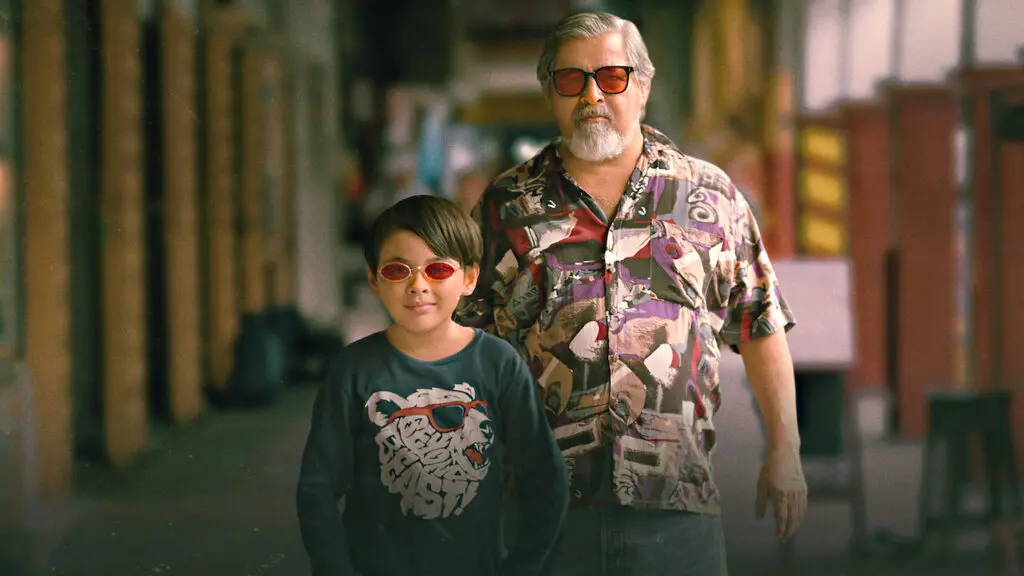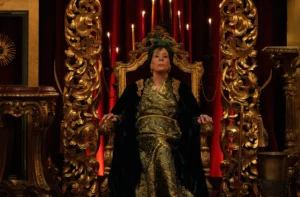Summary
Lolo and the Kid navigates many ideas, and it works, but it also relies on the viewers’ emotional range and perspective.
Lolo and the Kid is not a movie you’ll walk away from feeling particularly happy. It’s an experience where you’ll recognize the rawness of human nature and in the most normal of people. The Filipino film pitches a premise that’s difficult to process emotionally because you are unsure what to feel.
Let me explain.
Lolo and the Kid follows a homeless man and his grandson as they hustle through life. “Lolo” in Filipino means “a grandad,” if you are curious. In the opening scenes, the kid and the older man sleep outside a wealthy couple’s house. The couple is desperate for a child to start a family and are struggling to conceive. They decide to adopt the kid and pay off the grandad so he can live in better conditions in the province.
What transpires is a con: the kid escapes the house in the middle of the night with valuables. They then enjoy karaoke and sell their valuables the next day at a local pawn shop. This routine occurs regularly throughout the movie. The grandad and the kid will con aspiring parents, mainly from affluent backgrounds, to make a living.
And that provides a multitude of emotions. Lolo and the Kid does not immediately contextualize the characters’ situation. On the one hand, you feel shocked that an adult would take advantage of a child like this to survive on the streets. On the other hand, their grandad-grandson relationship is heartwarming and endearing.
Lolo and the Kid inserts many ideas in your conscience through the perspective of the grandad. While he is essentially operating as a criminal, at the same time, you can feel he is torn between providing this child with the life he should have and the life he has with him. At many moments throughout the film, you can see his moral compass swing, which adds another dimension to the story.
These additional angles provide a confusing range of emotions for the viewer. Child innocence is not to be taken lightly, but at the same time, the film understands the power of the role model—how children tend to mold themselves based on their leadership and environment. The Filipino movie is significantly important if you apply it as a social science, as it gravely reminds viewers of the importance of education and family upbringing.
The chemistry between the older man and the young boy does not help matters. It’s extremely good and compelling. They work together like yin and yang, joyously conning couples and surviving while, at the same time, running this odd, repetitive routine in their lives.
On the surface, the story seems simplistic and ordinary, but the slight nuances between the three acts are important. It won’t be hailed as the greatest film of the year, but it’s great. You will adore the relationship on show but have judgments at the same time. The director, Benedict Mique, has managed to convey a confusing but beautiful balance to a happy but sad story.
RELATED:




